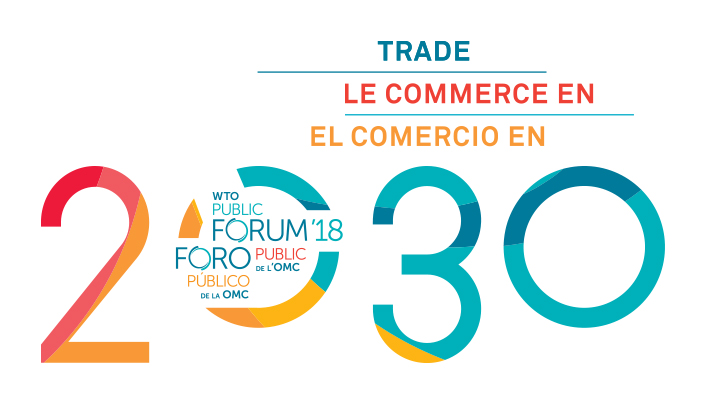How a plurilateral e-commerce agreement can meet African economic development needs?
3 Oct 2018 02:00h
Event report
The aim of this session was to discuss how digital trade rules can help African countries to benefit from e-commerce.The moderator of the session, Mr Alastair Tempest (CEO, Ecommerce Forum Africa), started by mentioning that the transformation of the digital economy is happening, but that trust is a big issue when it comes to e-commerce in African countries. He highlighted the role of mobile connections in developing e-commerce. Tempest stressed that we must transform our economy but that we can not jump on a ‘moving bus’ of digital economy. He noted that Africa has initiated the African Continental Free Trade Area (AfCTA). He encouraged doing business to business (B2B), business to consumer (B2C), and further facilitating entrepreneurship.
Mr Ibrahima Nour Diagne (Administrateur Général, GAINDE 2000; Co-Founder, The African Perfomance Institute) started by explaining that e-commerce in Africa needs the necessary technological infrastructures. He noted that legal issues are still obstacles in facilitating e-commerce development. According to him, African countries need to add value on products. In addition, he highlighted the importance of data and data localisation issues in understanding consumer behaviour. He pointed to the lack of digital skills on the continent; adding that if things continue the way they are, Africa will be marginalised in global digital trade.
According to Diagne, Africa needs to take advantage of the opportunities that e-commerce brings for creating jobs. He said that it is time for governments to exploit the positive impact of the digital economy. Diagne said that business is moving ahead, but asked how e-commerce can be used to help small and medium-sized enterprises (SMEs) in Africa? According to him, Africa needs to come together and be more engaged in e-commerce discussions.
Ms Lydia Makau (Country Manager, Safe.Shop, Kenya) emphasised the fact that e-commerce is perceived as an issue pertaining only to big companies in Kenya. She said that there are still gender barriers which prevent women from maximising the advantages of e-commerce. She talked about the role of the online platforms in reducing the unemployment levels in Africa, and explained that buying online can reduce costs for consumers. According to Makau, access to computers is a big issue in rural regions. In Kenya, they are developing the trust of consumers through the Safe.Shop initiative, and said that small businesses need that trust.
Mr Kwame Acheampong (Head of Africa, Mall For Africa) noted that e-commerce is a huge opportunity for young people in Africa, adding that e-commerce can become a threat if the digital divide is not bridged. According to Acheampong, governments need to examine the payment, logistics, and delivery issues.
He talked about the issue of trust in doing business on African platforms, saying that we should encourage local businesses to become a part of e-commerce, saying that we need to tackle the taxation issue and that the public sector needs to focus on the infrastructure of e-commerce.
Finally, the moderator closed the session by thanking the participants and saying that input from African governments are needed.
Related topics
Related event

